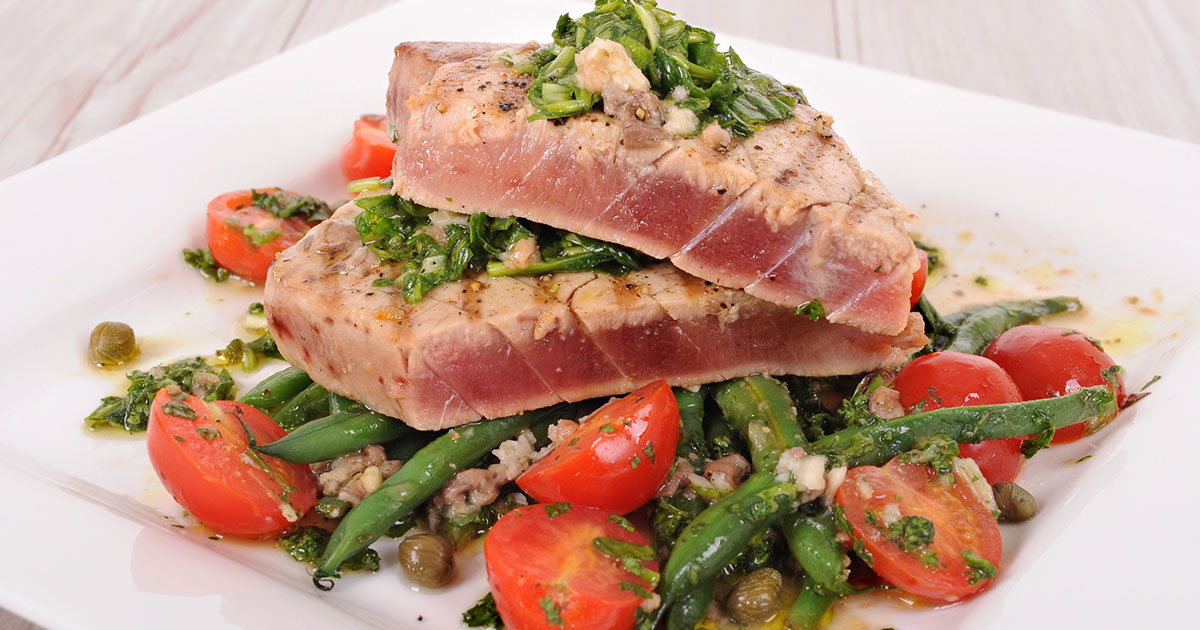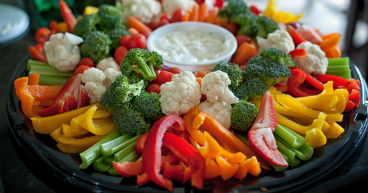
Patients battling cancer may often find they have to make adjustments in their normal routines, lifestyle and diet. Some patients may move a little slower due to fatigue or while recovering from surgery. Others may have to adjust their schedules to accommodate treatments and doctor visits. And many may have to change what they eat or how their food is prepared, especially if they like their steak rare or prefer sushi over cooked fish. Food that is undercooked or not thoroughly cleaned may contain harmful bacteria or parasites, possibly causing serious illnesses.
For cancer patients, the importance of avoiding foodborne illness are magnified. Patients with cancer, especially those who are undergoing treatments such as chemotherapy or stem cell therapy, may be more susceptible to foodborne illnesses due to their often-weakened immune systems. Those patients may not have the same capacity to fight off food poisoning or infections caused by bacteria or parasites that may be hidden in the food or drink they ingest.
Some symptoms of food poisoning, such as vomiting, fever and diarrhea, may mimic or augment symptoms of cancer and its treatments, potentially complicating your recovery.
Symptoms of foodborne illness
Patients with food poisoning may experience symptoms soon after eating or several hours or even days later. They may include:
- Diarrhea
- Fever
- Nausea and vomiting
- Stomach cramps
- Muscle aches
- Headache
What foods are riskiest?
Certain foods are more likely to contain dangerous microorganisms than others. So, it’s important to use extra caution with these high-risk foods:
- Undercooked meat or poultry
- Undercooked or raw seafood, including sushi, raw oysters or clams and ceviche
- Smoked fish and shellfish
- Unwashed fresh fruits and vegetables
- Undercooked or raw eggs and foods that may contain them, such as Caesar salad dressing, raw cookie dough or homemade eggnog
- Unpasteurized beverages, including raw milk or apple cider or other juices
- Unpasteurized (raw) cheeses, such as feta, brie and queso fresco
- Raw sprouts
- Ready-to-eat foods that may have been contaminated such as prepackaged salads, salad bars and buffets
- Unheated hot dogs and deli meats
If you do eat from a salad bar or buffet, make sure it’s fresh and hasn’t been sitting out all day. The same goes for potluck meals or cold cut trays. In some cases, it may be better to bring your own food to work or other destinations, since you know it’s been washed, cleaned and prepared properly.
Know safe cooking temperatures
To avoid foodborne illness, it’s essential to understand the proper cooking temperatures for meat and seafood, and use a reliable meat thermometer to confirm they are thoroughly cooked. Heating these foods until steaming (165 degrees F) will kill Listeria. For other foods, the U.S. Food and Drug Administration (FDA) and U.S. Department of Agriculture (USDA) recommend cooking to these minimum internal temperatures:
| Product | Internal temperature and rest times |
|---|---|
| Beef, pork, veal & lamb steaks, chops, roasts | 145 °F (62.8 °C) and allow to rest for at least 3 minutes |
| Ground meats | 160 °F (71.1 °C) |
| Ground poultry | 165 °F |
| Ham, fresh or smoked (uncooked) | 145 °F (62.8 °C) and allow to rest for at least 3 minutes |
| All poultry (breasts, whole bird, legs, thighs, wings, ground poultry, giblets and stuffing) | 165 °F (73.9 °C) |
| Eggs | 160 °F (71.1 °C) |
| Fish & shellfish | 145 °F (62.8 °C) |
| Leftovers | 165 °F (73.9 °C) |
| Casseroles | 165 °F (73.9 °C) |
Steps to reduce your risk
Beyond cooking to proper temperatures, here are more helpful tips to reduce your risk of foodborne illness:
Wash your hands. Your hands come into contact with incalculable amounts of germs and bacteria throughout the day. You’ve heard this before, but it’s important to reemphasize the need to properly wash your hands multiple times, both while preparing food and throughout the day, to reduce the spread germs.
Wash fruits and vegetables. Use warm water and, consider adding some citrus juice or vinegar to your rinse water. Raw fruits and vegetables are an integral part of a cancer patient’s diet, but remember to wash and prepare them properly.
Look before you eat. Don’t buy food in cans that are bulging, dented or rusted. These may be signs that the can has been compromised and the food inside contaminated. Check expiration dates in the store before you buy and at home before you open a package to eat. Don’t rely on the smell test. Food that doesn’t smell bad may still be contaminated.
Avoid cross contamination. Raw meats and their juices, seafood and eggs may transfer bacteria from one surface to another in your kitchen. Keep these high-risk foods in their own section of your shopping cart, grocery bags and refrigerator, and sanitize surfaces they touched before placing other foods there. Ideally, get multiple cutting boards and designate one each for raw meats, seafood, produce, bread and cooked meats.
Keep it clean. Thoroughly wipe down countertops, cutting boards and utensils before and after cooking or preparing food. Wipe off the tops of canned foods before opening them. Use hot, soapy water to clean dishes, pots and pans and disinfectant spray for countertops and appliances. Make sure to clean appliance and cabinet door handles.
Watch the temperature. Refrigerate foods promptly to reduce the risk of bacterial growth—within two hours of cooking or purchasing (and one hour if it’s over 90 degrees F outside). Bring a cooler with an ice pack to the grocery store to keep cold foods fresh on the way home if you’re making multiple stops. Keep your refrigerator set at 40 degrees F or below, and your freezer at 0 degrees F or below to keep your foods safe. Thaw frozen foods in the refrigerator.
Pass on the buffet. COVID-19 has changed restaurant habits for many Americans. And even as more restaurants re-open for business, it may make better sense for cancer patients to eat at home. It’s also recommended that cancer patients avoid crowds, especially indoors, including holiday parties. Still, if you are on the road to get treatment or visiting relatives for the holidays, you may be getting food from a restaurant, deli or the prepared-foods counter at a grocery story, so practice the food-safety tips above to avoid inherent risks.


